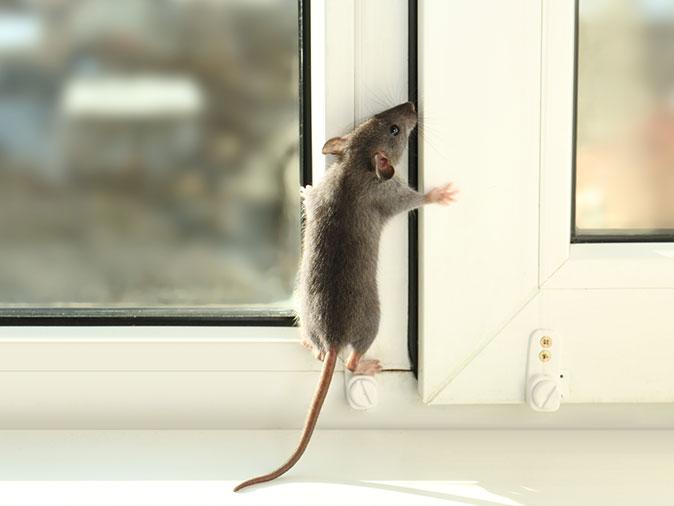Guest Communication Pest Protocols: Essential Insights
Share
In the realm of hospitality, ensuring a pleasant guest experience is paramount. One often overlooked yet critical aspect of this is effective guest communication pest protocols. As a hospitality provider, managing pest issues while maintaining clear communication with guests can be a delicate balance. In this comprehensive guide, we'll delve into strategies that ensure both a pest-free environment and satisfied guests.

Understanding the Importance of Pest Protocols
Pest infestations can occur in any setting, from hotels to vacation rentals. The presence of rodents, insects, or other pests can severely impact the guest experience, leading to negative reviews and a damaged reputation. Implementing robust pest protocols is essential not only for maintaining hygiene but also for ensuring compliance with health and safety regulations.
To start, it's important to recognize the common pests that can infiltrate hospitality settings. These include bed bugs, cockroaches, rodents, and flies. Each of these pests requires specific strategies for prevention and control. However, before diving into specific measures, it's crucial to establish a clear line of communication with guests regarding any pest-related issues.
Effective Guest Communication Strategies
Clear and transparent communication is key to managing guest expectations and mitigating potential conflicts. Here are some strategies for effective guest communication when it comes to pest protocols:
1. Proactive Communication
Inform guests about the steps you take to ensure a pest-free environment. This can be done through welcome emails, in-room information folders, or during the check-in process. Highlight the measures in place, such as regular pest inspections and treatments, to reassure guests of their safety.
2. Timely Response to Complaints
In the event of a pest sighting or complaint, respond promptly and professionally. Acknowledge the concern, apologize for any inconvenience, and outline the steps being taken to address the issue. This not only demonstrates your commitment to guest satisfaction but also helps prevent the situation from escalating.
3. Educating Staff
Ensure that all staff members are trained to handle pest-related inquiries and complaints. They should be knowledgeable about the pest protocols in place and able to communicate them effectively to guests. This empowers staff to act confidently and assures guests that their concerns are being taken seriously.
Implementing Robust Pest Protocols
To effectively manage pests, hospitality providers must implement a comprehensive pest control plan. Here are some key components:
1. Regular Inspections and Monitoring
Conduct regular inspections of the premises to identify any signs of pest activity. Use monitoring devices such as traps and cameras to detect and track pests. For more insights on effective monitoring techniques, check out WiFi Glue Trap vs Traditional Traps.
2. Professional Pest Control Services
Partner with a professional pest control company to ensure effective treatment and prevention strategies. These experts can provide tailored solutions based on the specific pest challenges of your property.
3. Preventive Measures
Implement preventive measures to minimize the risk of infestations. This includes sealing entry points, maintaining cleanliness, and educating guests on practices that contribute to a pest-free environment. For more preventive tips, visit Seasonal Rodent Control Strategies.
Handling Pest Issues in Vacation Rentals
Vacation rentals present unique challenges when it comes to pest control. Unlike hotels, where staff are present to address issues immediately, vacation rentals often rely on remote management. Here, effective guest communication becomes even more crucial.
Provide guests with a clear process for reporting pest issues, and ensure they have access to contact information for immediate assistance. Consider including pest control services in your listing description to reassure potential guests. For more on this topic, explore Including Pest Control Services in Listing.
Conclusion
Implementing effective guest communication pest protocols is essential for maintaining a positive guest experience and protecting your property's reputation. By proactively addressing pest issues, communicating transparently with guests, and implementing robust pest control measures, hospitality providers can ensure a safe and pleasant environment for all guests.

FAQ Section
1. What should I do if a guest reports a pest issue?
Respond promptly, apologize for the inconvenience, and outline the steps being taken to address the issue. Consider offering compensation or a gesture of goodwill to reassure the guest.
2. How can I prevent pests in my vacation rental?
Implement preventive measures such as sealing entry points, maintaining cleanliness, and educating guests on best practices. Regular inspections and professional pest control services are also crucial.
3. Why is guest communication important in pest management?
Clear communication helps manage guest expectations, prevents misunderstandings, and demonstrates your commitment to providing a safe and pleasant environment.
